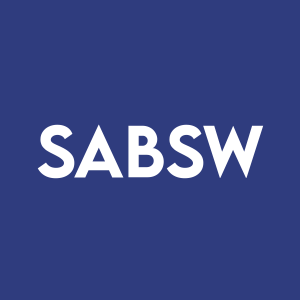SAB BIO Provides SAB-142 Clinical Trial Progress Update at the European Association for the Study of Diabetes Annual Meeting
Rhea-AI Summary
SAB BIO (Nasdaq: SABS) has provided an update on its SAB-142 clinical trial at the European Association for the Study of Diabetes Annual Meeting. The company has completed Phase 1 enrollment of all planned cohorts in healthy volunteers and is now enrolling patients with type 1 diabetes in the last cohort. Notably, the target dose of 2.5mg/kg was completed with no observation of serum sickness.
SAB-142, a first-in-class human anti-thymocyte immunoglobulin, is being developed to delay the onset and progression of type 1 diabetes. The Phase 1 trial aims to assess safety, tolerability, pharmacokinetics, and pharmacodynamics. The company remains on track for a topline Phase 1 data readout by the end of the year.
Positive
- Completed Phase 1 enrollment of all planned cohorts in healthy volunteers
- Target dose of 2.5mg/kg completed with no observation of serum sickness
- On track for topline Phase 1 data readout by year-end
- SAB-142 demonstrates improved safety benefit compared to rabbit anti-thymocyte globulin
- Potential to preserve endogenous C-peptide and prevent progression of type 1 diabetes
Negative
- None.
News Market Reaction – SABSW
On the day this news was published, SABSW gained 3.08%, reflecting a moderate positive market reaction.
Data tracked by StockTitan Argus on the day of publication.
SAB-142 has completed Phase 1 enrollment of all planned cohorts in healthy volunteers and is progressing to enroll patients with type 1 diabetes in the last cohort of the study.
Target dose of SAB-142 2.5mg/kg completed with no observation of serum sickness.
SAB-142 remains on track for a topline Phase 1 data readout by the end of the year.
MIAMI, Sept. 09, 2024 (GLOBE NEWSWIRE) -- SAB BIO (Nasdaq: SABS) (the “Company” or “SAB”), a clinical-stage biopharmaceutical company with a novel immunotherapy platform developing a human anti-thymocyte immunoglobulin (hIgG) for delaying the onset or progression of type 1 diabetes (T1D), today will offer a trial update on SAB-142 during its presentation at the European Association for the Study of Diabetes (EASD) 60th Annual Meeting in Madrid. SAB’s Executive Vice President and Chief Medical Officer Alexandra Kropotova, MD, MBA will present “Protecting pancreatic beta cells with multi-target immunotherapy: SAB-142.” SAB-142 is a first-in-class human anti-thymocyte immunoglobulin being developed as a disease-modifying treatment to delay the onset and progression of T1D.
“We are pleased with the continued progress of SAB-142 and its emerging safety profile to date,” noted Dr. Kropotova on the data. “Our trial results to date definitively demonstrate a lack of serum sickness for our SAB-142 compound, which is a key differentiation compared to rabbit anti-thymocyte globulin. SAB-142 has demonstrated this fully human anti-thymocyte globulin has an improved safety benefit and the potential to preserve endogenous C-peptide and prevent the progression of type 1 diabetes. We continue to gather SAB-142 data that supports our commitment to developing a disease modifying immunotherapy to change the lives of people impacted by type 1 diabetes.”
SAB commenced the Phase 1 clinical trial investigating safety, tolerability, pharmacokinetic, pharmacodynamic, and immunogenicity of SAB-142 in November 2023. The primary objective of the trial is two-fold: (1) to generate data on differentiated safety and immunogenicity of this human immunoglobulin, and (2) to establish a proof of biological activity (POBA) for SAB-142.
The Phase 1 study is a randomized, double-blind, placebo-controlled, single-ascending dose, adaptive design clinical study designed to assess the safety, tolerability, pharmacokinetics and pharmacodynamics of intravenous SAB-142 first in healthy volunteers and thereafter in participants with T1D.
Enrollment of healthy volunteers has been completed for all planned cohorts. SAB has completed the dosing of 2.5mg/kg with SAB-142 – its targeted dose - with no observation of serum sickness. Additionally, SAB has elected to add a T1D patient cohort to establish safety, tolerability, pharmacokinetic and immunogenicity profile of SAB-142 in patients with T1D prior to initiation of an upcoming Phase II SAFEGUARD study in patients with new-onset T1D. SAB is now progressing to enroll patients with T1D to supplement the last cohort of the study.
About SAB-142
SAB-142 is a human alternative to rabbit anti-thymocyte globulin (ATG). SAB-142’s mechanism of action is analogous to that of rabbit ATG, which has been clinically validated in multiple clinical trials for type 1 diabetes, demonstrating the ability to slow down disease progression in patients with new or recent onset of Stage 3 type 1 diabetes.
Two clinical trials have shown that a single, low dose of 2.5mg/kg rabbit ATG has demonstrated the ability to modulate the body’s immune response to help slow beta cell destruction and preserve the ability of these cells to generate insulin, which the body needs to regulate blood sugar and carry out all human activities.
SAB-142, like rabbit ATG, directly targets multiple immune cells involved in destroying pancreatic beta cells. By stopping immune cells from attacking beta cells, this treatment has the potential to preserve insulin-producing beta cells. However, most humans treated with rabbit ATG develop serum sickness and anti-drug antibodies from exposure to the rabbit-derived antibody. SAB-142 is a human antibody, intended to allow safe, consistent re-dosing for type 1 diabetes, a lifelong chronic disease, without the potential risk of inducing major adverse immune reactions that can occur with the administration of an animal ATG.
About SAB Biotherapeutics, Inc.
SAB BIO (SAB) is a clinical-stage biopharmaceutical company focused on developing human, multi- targeted, high-potency immunoglobulins (IgGs), without the need for human donors or convalescent plasma, to treat and prevent immune and autoimmune disorders. The Company’s lead asset, SAB-142, targets T1D with a disease-modifying therapeutic approach that aims to change the treatment paradigm by delaying onset and potentially preventing disease progression. Using advanced genetic engineering and antibody science to develop Transchromosomic (Tc) Bovine™, the only transgenic animal with a human artificial chromosome, SAB’s DiversitAb™ drug development production system can generate a diverse repertoire of specifically targeted, high-potency, human IgGs that can address a wide range of serious unmet needs in human diseases without the need for convalescent plasma or human donors. For more information on SAB, visit: www.SAB.bio and follow SAB on LinkedIn.
Forward-Looking Statements
Certain statements made in this current report that are not historical facts are forward-looking statements for purposes of the safe harbor provisions under The Private Securities Litigation Reform Act of 1995. Forward-looking statements generally are accompanied by words such as “believe,” “may,” “will,” “to be,” “estimate,” “continue,” “anticipate,” “intend,” “expect,” “should,” “would,” “plan,” “predict,” “potential,” “seem,” “seek,” “future,” “outlook,” and similar expressions that predict or indicate future events or trends or that are not statements of historical matters. These forward-looking statements include, but are not limited to, statements regarding future events, including, the development and efficacy of our T1D program and other discovery programs, including the results of our clinical studies related to SAB-142.
These statements are based on the current expectations of SAB and are not predictions of actual performance, and are not intended to serve as, and must not be relied on, by any investor as a guarantee, prediction, definitive statement, or an assurance, of fact or probability. These statements are only current predictions or expectations, and are subject to known and unknown risks, uncertainties and other factors which may be beyond our control. Actual events and circumstances are difficult or impossible to predict, and these risks and uncertainties may cause our or our industry’s results, performance, or achievements to be materially different from those anticipated by these forward-looking statements. A further description of risks and uncertainties can be found in the sections captioned “Risk Factors” in our most recent annual report on Form 10-K, subsequent quarterly reports on Form 10-Q, as may be amended or supplemented from time to time, and other filings with or submissions to, the U.S. Securities and Exchange Commission, which are available at https://www.sec.gov/. Except as otherwise required by law, SAB disclaims any intention or obligation to update or revise any forward-looking statements, which speak only as of the date they were made, whether as a result of new information, future events, or circumstances or otherwise.
CONTACTS
Kaelan Hollon
Media Relations:
khollon@sab.bio
Investor Relations:
Kevin Gardner
LifeSci Advisors
kgardner@lifesciadvisors.com
Chris Calabrese
LifeSci Advisors
ccalabrese@lifesciadvisors.com








